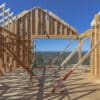Source: Forbes —
The housing market is sending clearer signals that historically low mortgage rates and the home-buying frenzy have come to an end. As we near the end of 2022, here’s a look at the expectations of real estate experts for 2023.
Danielle Hale, Realtor.com chief economist: After several years of an unambiguous sellers’ market, the 2023 housing market could feel more like a nobody’s market. We expect to see some buyer advantages in the form of 22.8% more homes for sale, however, the increase will result largely from homes taking longer to sell amid challenging affordability conditions. For-sale homes will remain high-priced with the national annual median price for 2023 expected to advance another 5.4%—less than half the pace observed in 2022. Still high prices mean that homeowners are likely to walk away from a home sale with significant equity if they decide to venture into the market and can find a buyer. On the whole, however, we expect home sales to be dramatically lower, down 14.1% compared to 2022 as both buyers and sellers pull back from a housing market and economy in transition. We expect the annual tally for 2023 to be roughly in line with the recent pace of home sales in late 2022.
For many potential first-time home buyers, 2023 will herald a delayed dream rather than a celebration as home costs exceed what’s possible on their budget and income. As fewer households make the jump to homeownership, increased rental demand could help keep rents moving higher. Nationwide, the median rental is projected to increase 6.3% in price, even as an influx of new multifamily housing helps to better meet rental demand. Renters looking to save in the year ahead may consider moving further out to the suburbs.
A still strong jobs market will keep incomes growing at a faster than historically average pace (3.9%), but they will not exceed expected inflation (4.1%) which means that many households will continue to make tough budget tradeoffs. After years of high-flying tech cities dominating real estate who’s-who lists, this year’s top performers are expected to be modest, mid-sized domestic industry hubs in the Northeast, South, and Midwest. The slow and steady real estate markets in these areas where homes continue to be affordable will be the stars in 2023, better weathering the affordability challenges that loom ahead.
Bob Pinnegar, president and chief executive officer of the National Apartment Association: Pursuing sustainable and responsible solutions to address our nation’s housing affordability crisis will remain a steadfast priority in the new year. Our nation’s affordability challenges stem from an alarming supply/demand imbalance, and to properly address this we must build 4.3 million new apartments by 2035.
On the economic side, supply chain issues have begun to ease and will hopefully continue to in the year ahead. While jobs are steady, the labor market faces challenges in areas like construction, where workers are needed. Inflation is starting to show signs of easing, but any of those impacts are unlikely to be seen until the end of 2023.
Nick Bailey, president and CEO of RE/MAX, LLC: One thing I can say for certain about the housing market in 2023 is that no matter the macro-economic conditions, Americans will continue to buy and sell millions of homes. Generally speaking, when we’re talking about the overall health of the housing market, most people are approaching that conversation from the lens of an investor. Will the market bottom out or have we hit the top? That’s an important conversation, but the truth is, people are getting married, divorced, moving to care for aging family members, relocating for career opportunities and so on, every single day. And for those people, it’s less about the interest rate or mortgage rates that week and more about their present situation and whether they can afford a house that fits their needs.
I’m optimistic that 2023’s spring selling season will be a bright spot as levels of inflation get more under control. There will still be extreme demand as new construction just can’t get out of the ground fast enough, and the Millennial home buyers, who make up a huge demographic, are primed to make their move. According to a recent survey conducted by RE/MAX in partnership with SWNS Media Group, 84% of Gen Z, 79% of Millennials and 61% of survey respondents 77 or older plan to buy a house or condo in the next few years. In my opinion, 2023 will be a better year for housing than many people think, especially because we’ll no longer have year-over-year comparisons to 2021 – an historic outlier that made 2022 seem less than what it really was.
Jacob Channel, senior economist for LendingTree: The housing market will remain tough for many would-be buyers. While mortgage rates might stabilize, prices could decline, and buyers may be able to negotiate with sellers more in 2023 than they were able to over the height of the pandemic, that doesn’t mean that buying a home is suddenly going to become a walk in the park. On the contrary, affordability challenges will likely persist for many, owing to rates remaining steep and supply remaining limited.
Borrowers shouldn’t expect rates to fall to anywhere near their record 2021 lows, or even to as low as they were at the start of 2022. Home prices won’t necessarily fall everywhere, but a combination of relatively high rates and weak home buyer demand will probably push prices down nationwide this year. Although a 5% to 10% drop may seem steep, it’s important to keep in mind that because home values rose so much over the height of the pandemic, declines this year are unlikely to totally wipe out the gains that many homeowners saw over the past few years.















